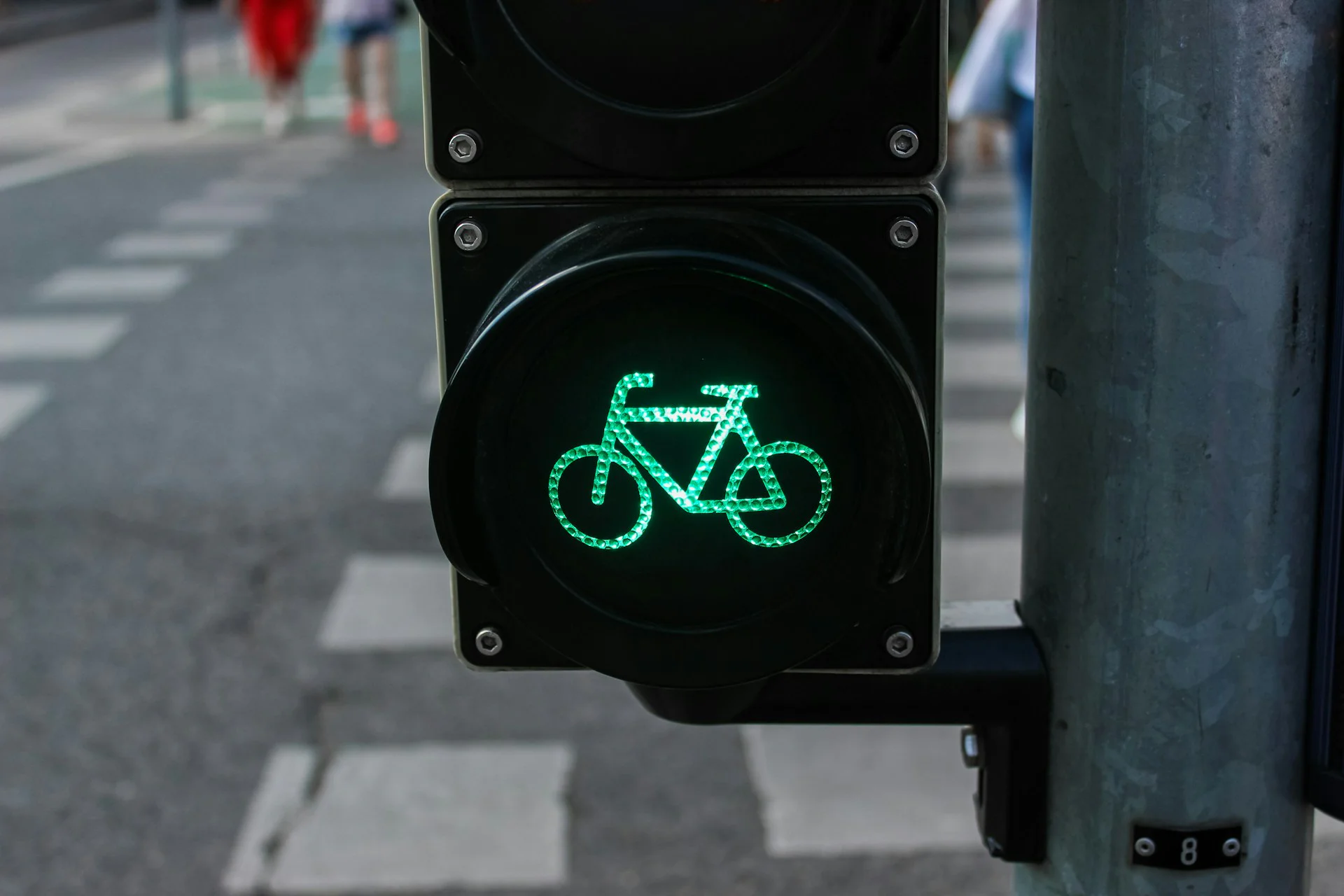Cycling across Georgia can be both enjoyable and unforgettable when you follow the state’s bicycle and traffic laws. From riding along the BeltLine to exploring the many rural trails, gaining a solid understanding of bicycle helmet laws is a wise step every dedicated rider should take.
On the one hand, Georgia bike laws concerning helmet use are quite simple — as long as you are a person under the age of 16 years, you must wear protective gear. Period. However, implications in the form of parental and legal responsibility, liability questions, and insurance claims require more than just strapping on a helmet.
Today, we’ll dwell on potential legal exceptions, discuss the smartest moves, and share expert insight into the safety of persons riding bicycles upon the roadways of Georgia.
Key Takeaways
- A person operating a bicycle should wear a helmet as long as they don’t reach the age of 16.
- Adult riders aren’t legally obliged to wear a bicycle helmet.
- Quality bicycle helmets set must comply with state-approved safety standards.
- Although Atlanta bike helmet laws duplicate general Georgia’s bicycle laws, local ordinances may be in effect.
- Parents and legal guardians are legally responsible for minors violating Georgia’s bicycle helmet law.
- In the event of a collision with a car or any other accident, the absence of a bicycle helmet may affect the insurance settlement.
Do You Have to Wear a Helmet in Georgia?
According to recent Georgia bicycle death statistics, over 20 people lost their lives riding the local trails. Can you believe that at least a third of these lives could have been saved? The recent National Medicine Library survey states that proper helmet use can decrease the risk of a fatal incident or serious injury by an impressive 34%.
With that being said, the state of Georgia has imposed stricter rules than some other jurisdictions. It is considered unlawful for any person younger than 16 years old to ride a bike without a helmet. The rule applies to any vehicle operator as well as the passenger on a bicycle if the bike is designed and equipped for the transportation of more than one person.
Adult bicycle riders aren’t forced by law to wear helmets when riding bikes. However, both legal experts and medical professionals advise strapping one every time you are out there on the ride. Not only will it enhance personal safety, but it will also protect your legal rights in case of an incident.
Is There an Age Requirement to Wear a Bicycle Helmet in Georgia?
The statewide regulations require an accompanying protective bicycle helmet for every person operating a bicycle who is under 16 years of age. However, there are a few nuances that may concern active parents who are willing to introduce their young kids to the lifestyle from a very early age.
Although there are no specific age-related regulations to comply with, there are certain equipment requirements that concern young passengers. Infants, up to one year old, as well as toddlers from one to four, must be transported on a bicycle equipped with a special bicycle trailer, child passenger bicycle seat, or sling that is appropriately fixed to the bike. At the same time, the equipment must comply with the bicycle trailer’s manufacturer’s instructions.
As for bicycle helmets, it is allowed to put a baby helmet on a child over 4 months old. Most baby helmet producers make lightweight but practical gear that complies with federal safety standards. So, whether your child is sharing a bicycle lane with you or travelling on a sidewalk on their toy vehicle, a well-fitted helmet will boost their protection and decrease potential parental liability.
NOTE! Keep in mind that ebike laws in Georgia differ from existing regulations.
What Happens If a Child Does Not Wear a Helmet in Georgia?
Georgia law does not impose either civil or criminal penalties on an underage rider cycling without protective headgear. However, this exceptional attitude does not apply to parents or legal guardians. The responsible adults must ensure that children are aware of and comply with existing helmet regulations. Although there aren’t monetary or criminal penalties imposed at the moment, local municipalities try to raise awareness through various educational programs.
NOTE! Repetitive violations may trigger harsher penalties in the form of community services or citations. Local regulations may be put into action.
What Are the Main Safety Requirements for Bicycle Helmets in Georgia?
Whether you are trying to pick the best helmet for yourself or your child, there’s a set of requirements to pay attention to before finalizing your decision. Quality headgear must comply with the following criteria:
- It must be tested and certified by either the American National Standards Institute or the Snell Memorial Foundation. Either institution ensures that the item corresponds with existing quality standards and has necessary impact resistance.
- A reliable helmet must sit well on such a person’s head, without obstructing the vision. It shouldn’t be either too loose or too tight. It should fit your head properly. It goes without saying that it must be securely strapped at all times.
- You may want to consider the purpose of your headgear.
Depending on the type of cycling, you can choose the helmet that suits you ideally. For instance:
1. Recreational helmets are lightweight, stylish, and well-ventilated, and suitable for leisure cycling. There are even infant-size models available.
2. Mountain bike helmets are sturdier and shaped to provide as much coverage as possible. Larger vents allow enough air in to keep your head cool during the toughest of rides.
3. BMX helmets are designed with sports activities in mind. They are durable and practical.
4. Commuter helmets are created for daily cycling purposes. They are softer for enhanced comfort while on a bicycle path to work and often feature additional accessories such as integrated lights and reflectors.
Are There Any Exceptions To Georgia Bicycle Helmet Laws?
The state of Georgia constitutes a few exceptions to existing bike laws. They are applicable in cases when:
- A rider under the age of 16 has a medical condition that restricts the use of bicycle helmets.
NOTE! It is advised to have a copy of documents confirming your existing medical condition with you in case local law enforcement has any questions.
- The cyclist’s religious beliefs interfere with the imposed helmet regulations.
- A bicyclist takes part in a cycling event that exempts them from the mandatory use of helmets, and the local political subdivision thereof has a special-event permit issued.
What Do You Risk By Not Wearing a Bicycle Helmet?
If there are no other applicable rules and regulations intact, it is safe to assume that wearing a helmet isn’t that big of a deal. However, statistics prove otherwise. If a rider upon a roadway shall not exercise reasonable care and skip on adding a helmet to the essential bicycle equipment list, they may risk the following:
- Serious head injury: Helmets have proved to decrease the chance of severe head trauma by almost 50%. Without proper head protection, even a minor accident can inflict significant damage.
- Long-term cognitive impairment: 53% of people without helmets faced traumatic brain injuries as a result of an accident. Varying-scale TBIs can lead to temporary memory loss, speech problems, and permanent disability.
- Financial implications: Head injury treatments can go up to hundreds of thousands in medical bills.
- Missed work or school: A serious injury can keep you weeks, if not months, off work or school. In the worst-case scenario, an accident victim may not recover in full, suffering from compromised learning or earning capacity.
How Can the Absence of a Helmet Affect Your Bike Accident Claim?
Just like in the case of cycling in headphones, if a person operating a bicycle does not wear a helmet and gets into an accident, the aspect shouldn’t be used as an insurance leverage. That is, if we’re speaking legally. The law of Georgia states that:
“Violation of subsections (c) and (d) of this Code section shall not constitute negligence per se nor contributory negligence per se or be considered evidence of negligence or liability.”
In reality, both the at-fault party and their insurance company will try to argue your liability to decrease the claimed compensation. The state of Georgia abides by a modified comparative negligence rule, which allows you to recover reimbursement of the suffered losses as long as you are not 50% to blame. However, should you be found partially responsible after a bicycle accident in Atlanta, your payouts will be reduced according to the percentage of fault assigned to you. This fuss and implications could be avoided by wearing a protective helmet. Yet, if the incident has already occurred, working with field-trained legal advisors will improve your odds of securing the settlement you deserve.
Consult an Experienced Bicycle Accident Lawyer Today!
Bicycle accidents happen fast, but the road to recovery is often slow and filled with implications. Whether you or your loved ones have been injured in an incident, and the defendant tries to argue liability on account of helmet laws in Georgia, we’re your guy!
Our Atlanta bicycle accident lawyers work on a no-win, no-fee basis so that there’s no additional financial strain to face. Moreover, our experts offer free case evaluations to determine where you stand with your claim and whether the fight is worth the effort. Call us today so we can handle this legal maze together!
If you’re a cyclist who has been in an accident, call today for a free initial consult about your legal claim. We’re here to help with your legal questions. Contact our law firm for coast-to-coast bike accident and personal injury representation.

Does Law in Georgia Require a Cyclist to Wear a Helmet?
All cyclists younger than 16 years must wear a helmet when riding across the state. Adult riders aren’t legally obliged to use protective headgear, but it is advised for safety reasons. Quality helmets do save lives, not to mention that they simplify the legal process of settling an accident claim.
Do Georgia's Helmet Laws Apply to Electric Bicycles (E-Bikes)?
Bicycle helmet laws apply to electric-assisted bicycles in Georgia. All riders under 16 must wear a helmet when operating a Class 1 or Class 2 bike. All cyclists riding a Class 3 e-bike must have protective headgear on, with no age-based exceptions.
Will I Get Fined If I Don't Wear a Helmet When I'm Over 16 in Georgia?
If you don’t wear a helmet in Georgia and you are of age, you won’t face a monetary penalty, unless it is related to any other rule violation.






